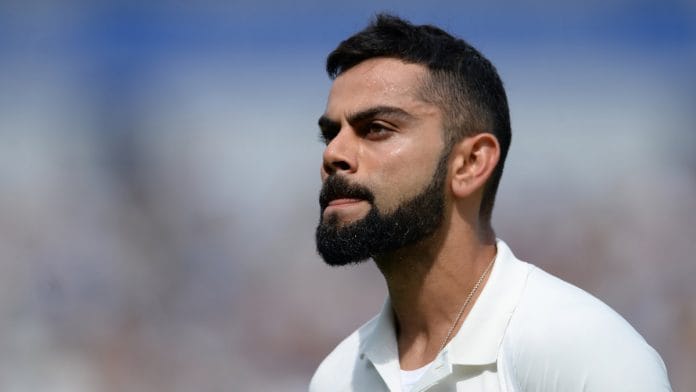Nobody reads any more. This is the refrain we hear on a daily basis when it comes to sport and the coverage of the men and women who allow us to live our dreams in reflected glory as they do battle in their chosen arenas. In India, the battleground with the brightest lights shining on it is cricket — often referred to as a religion — and the players of this game. But in truth, far more important than that is who draws the most eyeballs.
To that end, it should come as no surprise that Virat Kohli was the most read-about cricketer across the Internet. And, wait for it, reports of this generation not reading are not just premature, they are downright wrong. Youngsters of today may not take a newspaper with their morning smoothie, but indications are that they are just as hungry to know more about the world around them as their mothers and grandfathers before them.
A recent study, titled ‘Cricket Players Reader Engagement’, has shown that over 100 million readers looked for words on Virat Kohli, and his popularity as Indian captain, one of the best batsmen in the world and celebrity, ensured that he was eight times more popular than the next man in the list.
Taboola, a discovery platform, conducted its analysis on the open web, parsing in excess of 450 million readers, nearly 200,000 articles that stretched over four billion page views. But, while Kohli’s emergence at the top of the charts is only expected, you might be surprised by who came in second. Mahendra Singh Dhoni? Rohit Sharma? Jasprit Bumrah?
Not even close. While these men pick up the endorsement contracts and are always front of mind through their appearance in your lives in hoardings, television advertising spots and radio jingles, the written word is a different ball game.
Also read: For this former Mumbai cricketer, every ‘Mankading’ is a harrowing experience
The man who has caught the eye
The visual is a largely passive exercise, but the written word is something that is sought when someone wants to learn more, especially in the digital age where the search engine has become the first resort when it comes to clearing a doubt or settling a bet.
And it followed that Rishabh Pant was the second-most read-about cricketer, coming in at 12 million. Pant may not have got a ticket to the 2019 World Cup but he has caught the eye with his fearless power-hitting. Already India’s Test wicketkeeper, it is only a matter of time before Pant has his hour in the sun in all formats.
While Pant’s work behind the stumps may not be the sharpest yet, the conundrum of his non-selection in the Indian World Cup squad while being Test wicketkeeper has left experts confused, and perhaps this powered the hunger for readers trying to get to know more about the young man.
This supposition is only bolstered by the fact that while more readers flocked to Kohli, they did not stay for much more than the headline and the highlights. Kohli’s readers spent, on average only 39 seconds scanning an article written about him, while Pant commanded attention for 54 seconds on each piece about him.
Doesn’t sound like a lot to you? Consider the fact that the average Indian spends less than four minutes a day on the mobile Internet, despite the fact that India’s mobile Internet usage growth was higher than any country in 2018, according to the Global Digital Report published by Simon Kemp.
What the numbers say about popularity
Going further down the list, it is clear that readers spent more time on trying to get to know certain players better rather than tracking what their favourite players were up to.
Trent Boult, New Zealand’s left-arm swing bowling smiling assassin, came close to Pant, holding attention for 51 seconds, on average. Given New Zealand’s relative insignificance in terms of population — the Land of the Long White Cloud boasts 48 lakh to India’s 133 crore — the interest in Boult is staggering.
Consider this also. While Kohli has 23.9 million followers on Twitter, the most for a cricketer by a country mile, and Pant commands the attention of 355,000 on the same platform, Boult has only 62,000 people to call on.
Popularity on social media is one thing, but readers clearly believe there is life beyond Twitter, Facebook and Instagram.
Also read: How the cult of Sanath Jayasuriya pulled India-Sri Lanka cricketing ties from drifting apart






